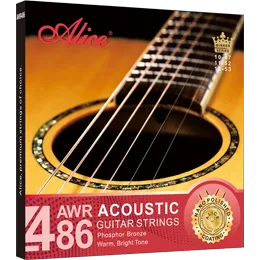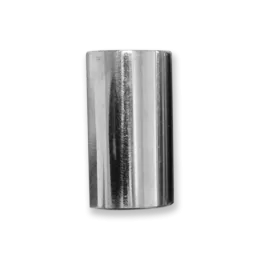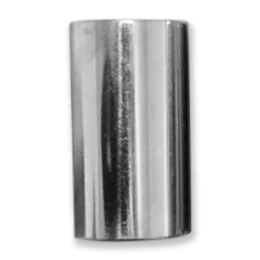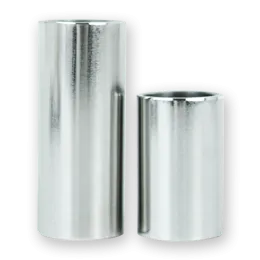How to Fix Guitar Strings?
Many people usually underestimate the effects of strings on the guitar. However, unqualified or rusted strings can lead to a dark tone. Instead, a pack of high-quality strings can improve the tone and feel of your playing and prolong the strings’ life.
Breaking a string is an unavoidable thing that happens to every guitar player at some point in life. Whether temporarily repairing guitar strings to ensure smooth performance or changing them regularly is a common sense that every player needs to master.
This article will offer a complete guide to fixing guitar strings. Follow up and keep reading!

Repairing A Broken String
If your new strings break at the side of the ball end, you can temporarily repair them to continue playing, provided you have enough remaining strings on the tuning peg. This temporary fix can save you plenty of time and money for emergencies.
1. Free the Broken String
First, loosen the broken string by turning the tuning peg clockwise when it is 6th string, A string, or D string. On the other hand, turn the tuning peg counterclockwise when the string is G string, B string, or 1st string. Then, use the pin puller to remove the bridge pin and gently take out the broken string from the bridge pin.
2. Insert the Unbroken String
Cut the broken string with string cutters. Then, untie the string on the ball end and pass the unbroken part through it, wrapping the string around three to four times. Next, insert the ball end into the string hole about 2mm. After that, hold the strings on the tuner with one hand to tighten the strings and turn the tuning pegs with the other hand so that the string can wind down on the tuning pegs.
Note: When winding the string, please pay attention to its tightness until the string is back to the correct tension.
Changing the String in Time
If your strings are broken in the middle or used for a long time, the best bet is to replace them. Otherwise, the strings will lose tension, becoming soft and easy to run out of tone. In addition, playing rusted strings is dangerous, easily injuring the player or causing tetanus. So, changing the strings on a regular basis attaches great significance. Here are the following steps to change strings:

1. Preparation of String Replacement
Choosing a stable position is very important for string changing, such as a workbench. Then, prepare new strings, a string winder, string cutter, pin puller, tuner clip, and other tools. Finally, don't forget to distinguish and divide the new strings by thickness from the 1st to the 6th string.
2. Take out Strings
Loosen the strings by turning tuning pegs.
When all the strings have loosened, use the pin puller to remove the bridge pin.
Gently remove all the old strings from the bridge and tuners.
3. Clearance and Maintenance
Steel wool and fretboard oil are the best combinations for maintaining the guitar. First, brush the fingerboard with steel wool in the direction of the wood grain. Later, dip the toothbrush in fretboard oil to rub the entire fretboard and its edges. After 5 minutes, you can wipe off the excess oil on the surface with dry tissues.
4. Insert Strings in Order
Starting with the 6th string, and gently bend the ball end of the string before inserting it into the bridge string hole.
Then, insert the string into the bridge pin and gently pull it up.
When the string is pulled out and the pin is pressed in, you will hear a "click," which means the string is in place.
Pull the 6th string to the head and cut the strings with string cutters at the proper position, such as the 5th string tuner.
Finally, insert the 6th string into the string hole and wind it down on the tuning pegs.
Note: When winding the strings, please pay attention to their tightness.
5. Test the Tune
Use the tuner clip to tune to the desired pitch, and gently pull up and down each string to fully release the tension of the strings until each string reaches the standard.
How Alice Strings can Help

Established in 1999, Alice Strings is a professional and first-class manufacturer of musical instruments, strings, and accessories. The company integrates independent R&D, automated production, global sales, and after-sale services.
Alice Strings has a professional R&D center with materials and finished products thoroughly tested by chemical, mechanical and structural methods. With the full implementation of the ISO9001:2015 standard, the entire production cycle from raw materials to finished and packaged goods is closely monitored to comply with the standard.
We provide more than 2,000 kinds of products, including Classical Guitar Strings, Acoustic Guitar Strings, Electric Guitar Strings, and other musical instrument accessories to meet the needs of music lovers.
If you are looking for a reliable supplier. Contact us!
Relate News


Nylon Strings for Classical Guitars: Everything You Need to Know

5 Key Indicators to Identify High-Quality Acoustic Guitar Strings
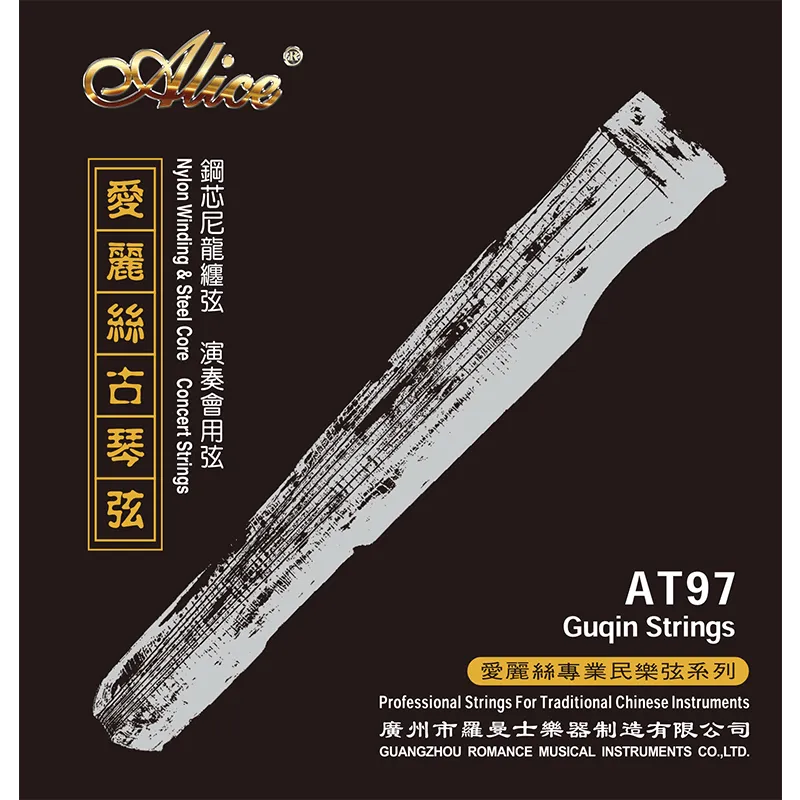
What Are Guqin Strings Made Of?
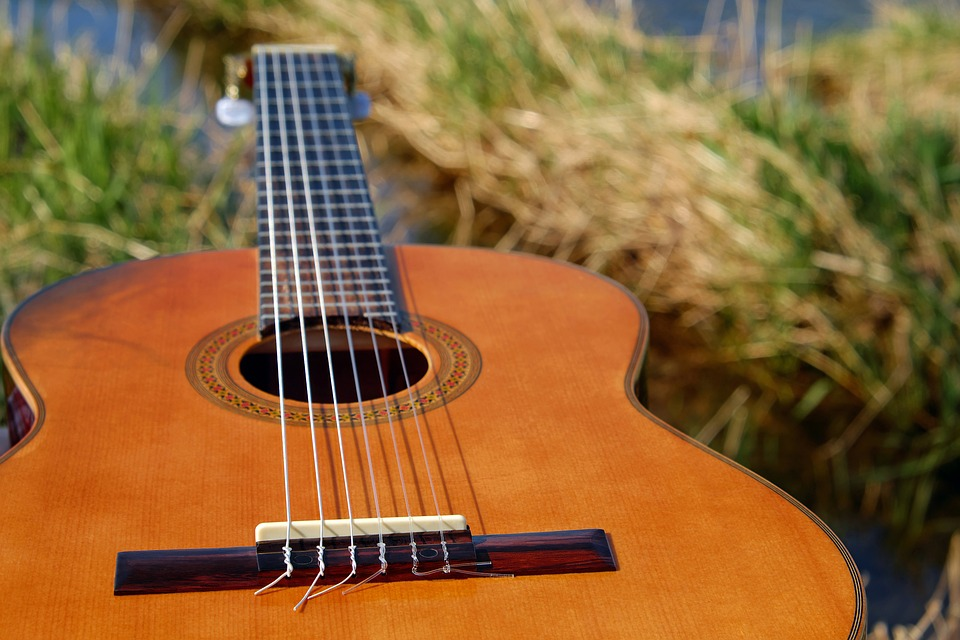
Silk Strings, Steel Strings, and Nylon Strings: Which Is Best for Your Traditional Music Performance?

Complete Guide to Guitar String Materials

Orchestral Strings Explained: A Beginner-Friendly Guide to Violin, Viola, Cello, and Double Bass

Tone Comparison of Brass Alloy, Phosphor Bronze, and Coated Guitar Strings

How to Choose the Right Guitar Strings for Your Performance: A Scenario-Based Buying Guide

OEM Guitar String Customization: A Detailed Guide to the Process
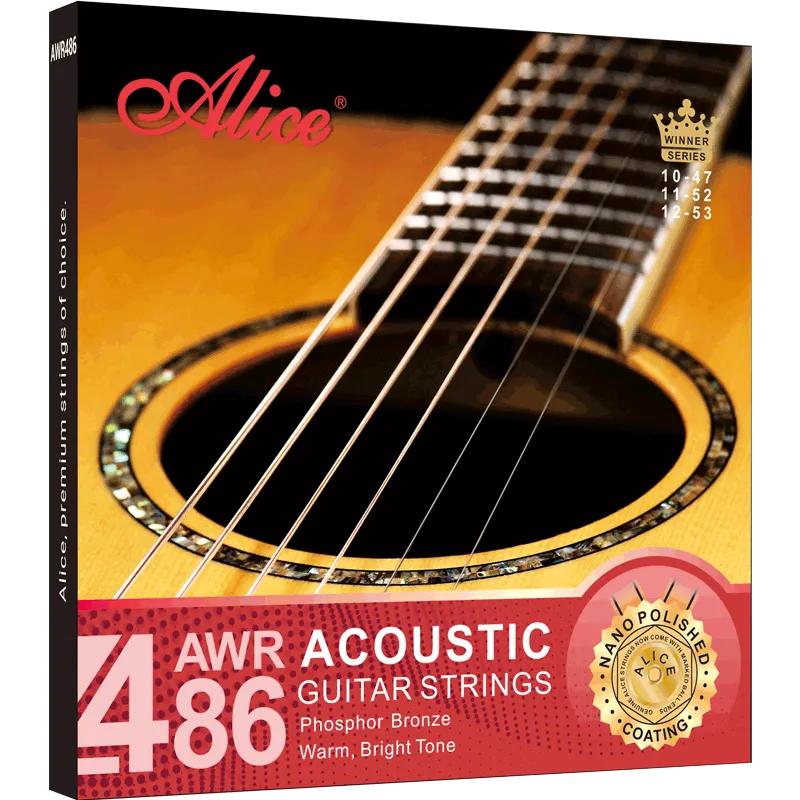
Copper Alloy vs Phosphor Bronze: Which Acoustic Guitar Strings Suit You Best?







